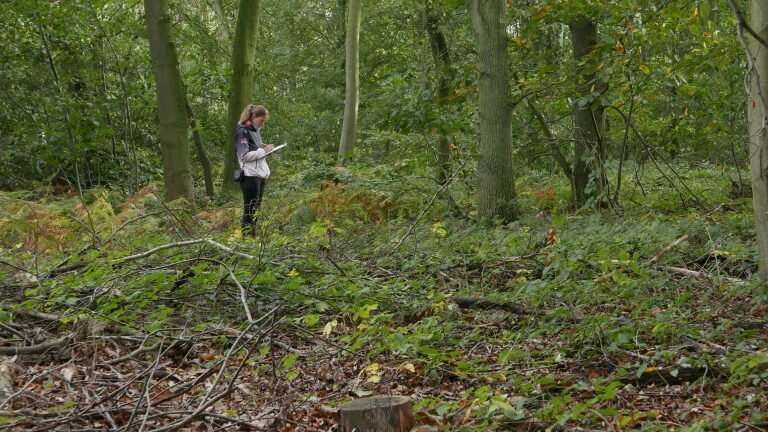This article has been reviewed according to Science X's editorial process and policies. Editors have highlighted the following attributes while ensuring the content's credibility:
fact-checked
peer-reviewed publication
trusted source
proofread
New research reveals the impact of different species and their traits on human well-being

New research has revealed for the first time that well-functioning ecosystems are crucial to human health and well-being, with human-biodiversity interactions delivering well-being gains equating to substantial health care cost-savings, when scaled-up across populations.
Published in Nature Sustainability, the Kent-led study, which is part of the project Relating Subjective Well-being to Biodiversity (RELATE), set out to understand which components of nature and biodiversity played a particular role in human well-being.
The team, which was led by Professor Zoe Davies, analyzed the effects of species' traits, based on people's feedback following a series of workshops, to identify those that generate different types of well-being, e.g., physical, emotional, cognitive, social, spiritual, and global, the latter being akin to whole-person health.
The team found that, in general, the vast majority of species and traits are beneficial to human well-being. They also discovered that each species may support multiple traits, potentially with different impacts. For example, the colors of brambles (black, pink, red) are linked to multiple positive physical, emotional and social well-being types, but their prickly texture generated negative emotional well-being. The numerous traits from across an ecological community can elicit a multitude of well-being responses, illustrating the true complexity of how people relate to biodiversity.
Professor Davies, a biodiversity conservationist at the Durrell Institute of Conservation and Ecology (DICE), said, "While we know that spending time in natural environments can improve our health and well-being, we still need to know more about which species, or traits of species (such as colors, sounds, smells, textures and behaviors), deliver these benefits—and how people's relationships with biodiversity are both contextually and culturally specific. Understanding how people experience biodiversity is therefore key to successfully managing biodiversity to facilitate human well-being."
Study co-author, Professor Martin Dallimer, from the School of Earth and Environment, University of Leeds, said, "For the first time, through analyzing people's own words and reflections, we are able to explicitly link that feeling of well-being with species and their traits. How people respond to biodiversity is hugely varied and if we want people's well-being to benefit from spending time in nature, then it is essential to make sure we are maintaining and restoring high quality biodiverse spaces for wildlife and for people.
"Our aim is that these findings really drive home how important biodiversity is in underpinning well-being benefits, particularly to health care and public sectors who include 'spending time in nature' as an element of mental health and well-being."
Dr. Jessica Fisher, also from DICE, added, "By starting to comprehend how people experience biodiversity, we can begin to manage our natural environments for both biodiversity conservation and human health. Even small improvements in well-being at an individual level could scale up to substantial health care cost savings across an entire country.
"Our approach can be used to create better-tailored public health interventions or architectural/landscape designs by, for example, maximizing the likelihood of people having interactions with certain species and their traits. Critically, as each additional species in an ecological community supports additional traits, maintaining or enhancing biodiversity will be key to delivering human well-being."
More information: J. C. Fisher et al, Human well-being responses to species' traits, Nature Sustainability (2023). DOI: 10.1038/s41893-023-01151-3
Journal information: Nature Sustainability
Provided by University of Kent




















